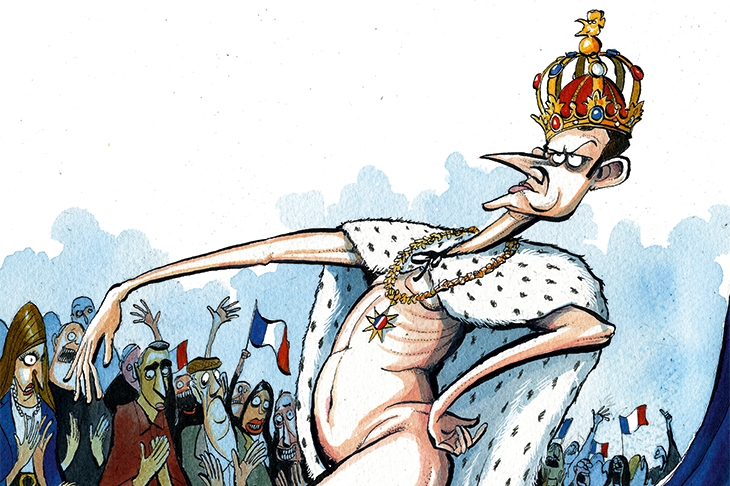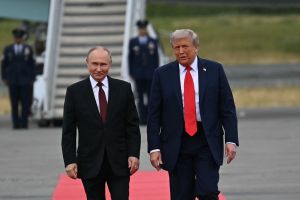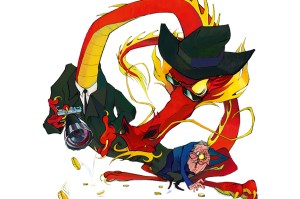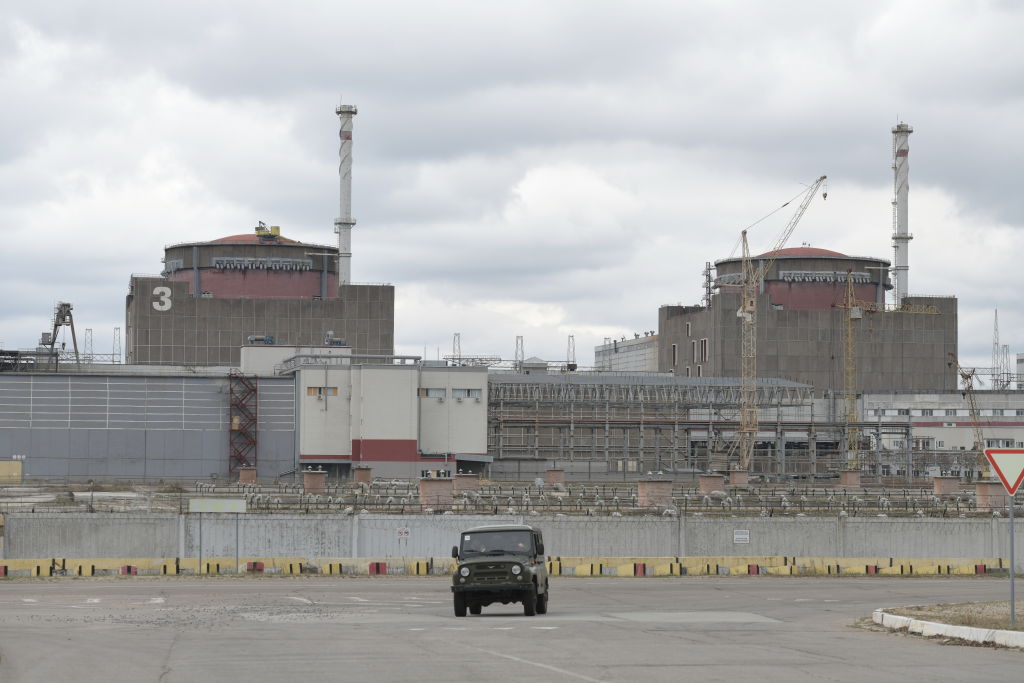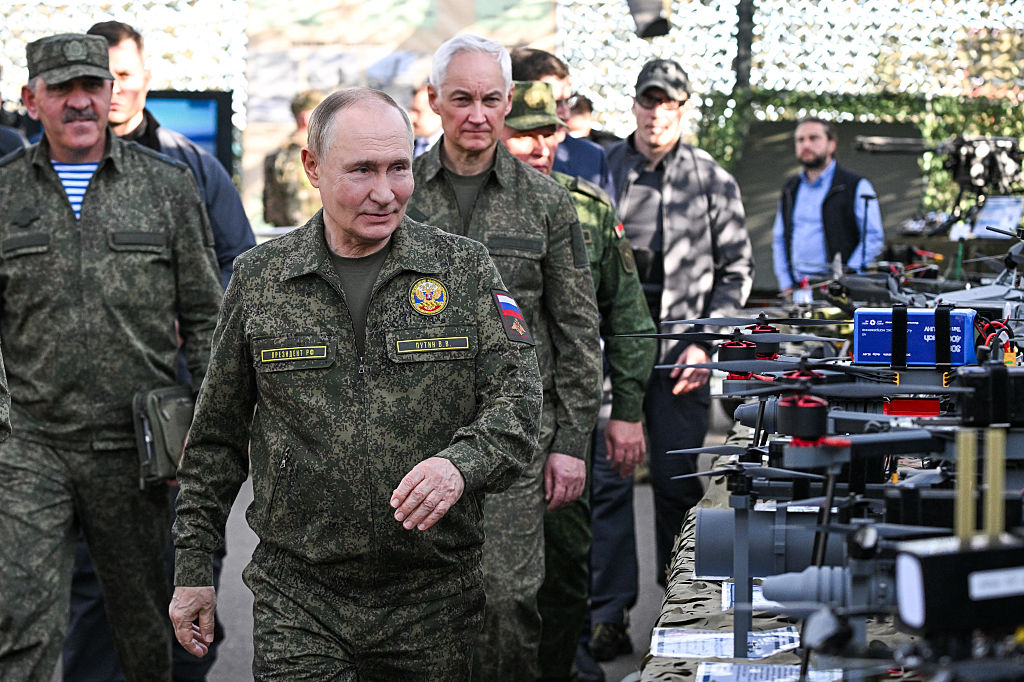God bless Emmanuel Macron for his perseverance and self-confidence. The French president seeks to lead Europe and turn the continent into a strong, independent player in its own right. And he is eager to take on the hard, thankless diplomatic work that few of his peers are willing to do. Whether it was his ploy in 2019 to connect then-US president Donald Trump and then-Iranian president Hassan Rouhani on the phone or his months-long, intensive personal dialogue with Russian President Vladimir Putin before the war in Ukraine, Macron invests a lot of time and capital into these gambits.
Unfortunately for him, many of them fail to accomplish anything of substance. Macron wasn’t able to convince Rouhani to speak with Trump (although Trump reportedly agreed to the call). His endless conversations with Putin did nothing to dissuade the Russian strongman from invading his neighbor — he admitted as much during the Munich Security Conference in February, where his tune toward Russia was noticeably more hawkish than a year ago.
Macron seems to have given up for the time being on mediating a war ending settlement in Ukraine. His objective now is to persuade Russia’s biggest foreign backers – like China – to use their leverage over Moscow to pressure Putin into negotiating with the Ukrainians. This is one of the big priorities during Macron’s multi-day trip to China, where he landed in Beijing for a state visit and was serenaded by Chinese president Xi Jinping with a flashy red carpet, a marching band, and a 21-gun salute. The Frenchman tried to flatter his way into Xi’s good graces, hoping nice words would help nudge the most powerful Chinese leader since Mao Zedong into speaking a little truth in Putin’s ear. “The Russian aggression in Ukraine has dealt a blow to [international] stability,” Macron said before meeting with Xi at the Great Hall of the People. “I know I can count on you,” Xi, “to bring back Russia to reason and everyone back to the negotiating table.”
You can’t blame Macron for trying. If there is any foreign leader who has the power to utter truths to Putin, it’s Xi, whose country has shielded Russia from total diplomatic isolation, is refusing to implement Western-led sanctions, and is propping up the Russian economy by importing more of Moscow’s fossil fuels. The Center for Research on Energy and Clean Air, which tracks Russian fossil fuel exports, finds that China has purchased nearly $70 billion of Russian oil and natural gas since the beginning of the war in Ukraine. China is an even more important source of Russian revenue since December, when the European Union instituted an embargo on Russian oil imports, depriving Putin of what was long his country’s most profitable market. If it weren’t for Beijing stepping into the breach (albeit for its own economic reasons), Russia’s budget deficit would be in a lot worse shape than it currently is.
China is supporting Russia diplomatically as well. Xi has refused to put the blame on Putin’s shoulders for launching an invasion, arguing that NATO’s eastward expansion and the West’s containment policy against Russia didn’t give Moscow much choice but to do what it did. The G-20 was unable to release a stronger statement on the war in Ukraine partly due to Chinese obstructionism. Nor is Xi treating Putin as an international pariah; he has no problems jetting to Moscow for summits with an individual who is now wanted by the International Criminal Court for war crimes.
Macron knows all of this, of course. He also knows that the Chinese Foreign Ministry put out a provisional peace outline in February which called for an immediate ceasefire, respect for a state’s sovereignty and territorial integrity, and the resumption of political negotiations to end the conflict — everything you would hope would be included in such a document. The French president also recognizes that China and Russia don’t agree on every single issue pertaining to the war and that Xi’s “no limits” partnership with Putin is less than meets the eye. Fu Cong, China’s ambassador to the EU, seemed to confirm that this week when he told the New York Times that “’No limit’ is nothing but rhetoric.”
Differences, though, don’t necessarily translate into a willingness to assist the West’s Ukraine policy. Xi doesn’t care about Ukraine, whether the war continues, or whether the war stops. He cares about what is best for China’s own interests at a given moment. And right now, as perverse as it is to say, China’s interests are served by allowing the war to progress and reaping the economic and strategic benefits of an increasingly desperate Russia next-door. Chinese officials can talk all they want about stopping the killing and respecting the United Nations Charter (the foreign policy equivalent of saying “the sky is blue” and “the grass is green”), but China itself is in a quite comfortable position geopolitically. The West’s sanctions regime against Moscow and the tens of billions of dollars in arms deliveries to Ukraine has moved Putin even further into China’s camp, and Xi is exploiting this situation by signing long-term energy deals at a cheap price (because let’s face it, Russia doesn’t have many options).
The one thing that may get Xi to reassess is if China’s ties with Russia spoil his attempt to rebuild bridges in Europe. But Xi is doing a crafty job thus far in avoiding anything (like major weapons sales to the Russian army) that would ruin his outreach to Europe. Macron will therefore leave Beijing disappointed, having yet again tried and failed to achieve what his counterparts may already think is impossible.



